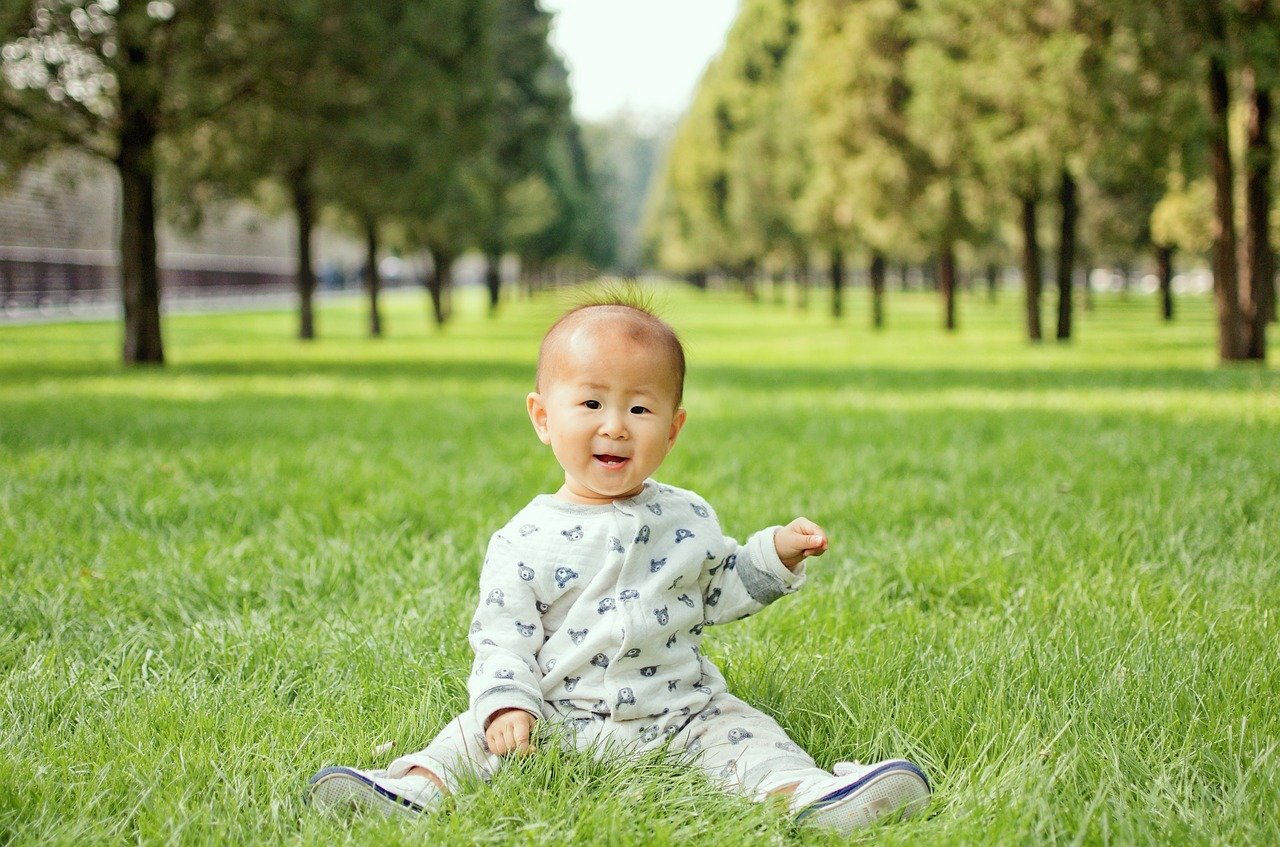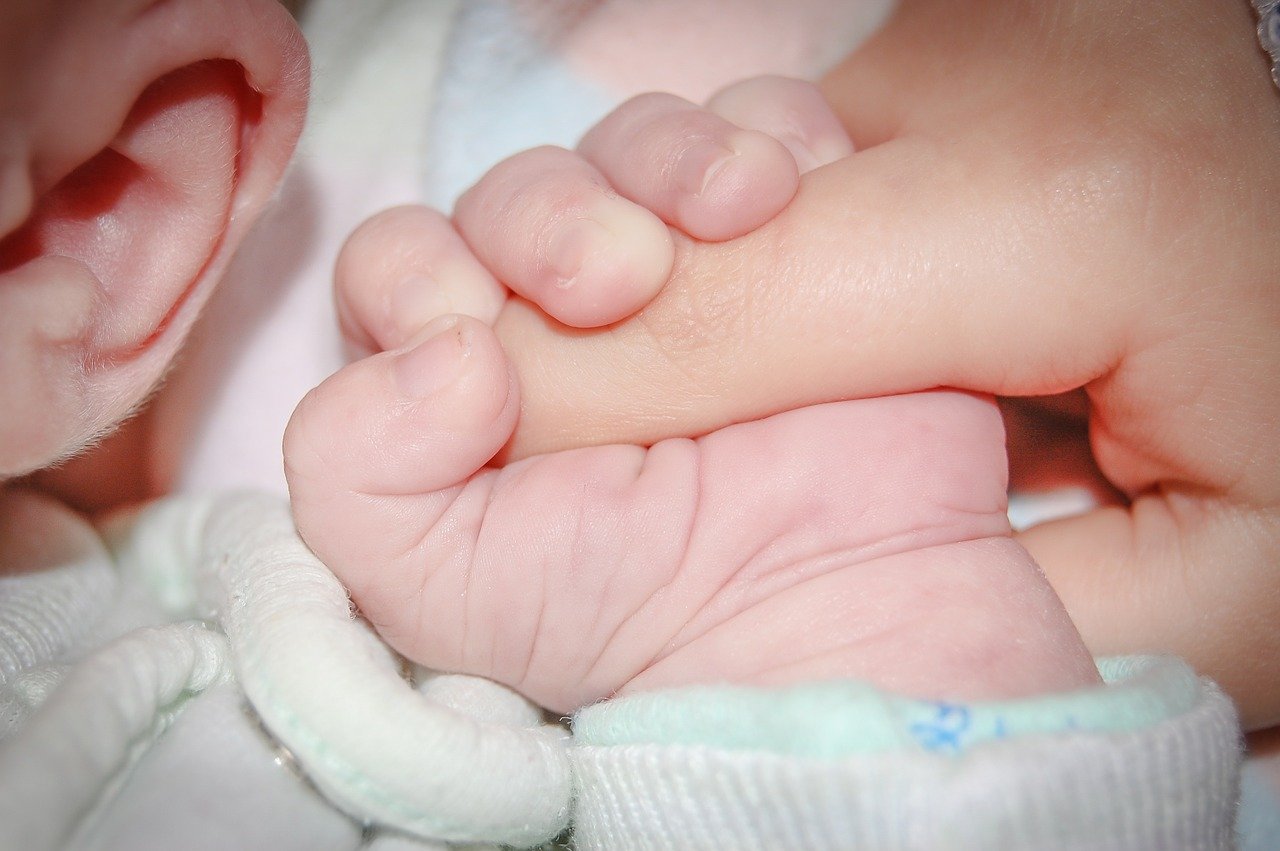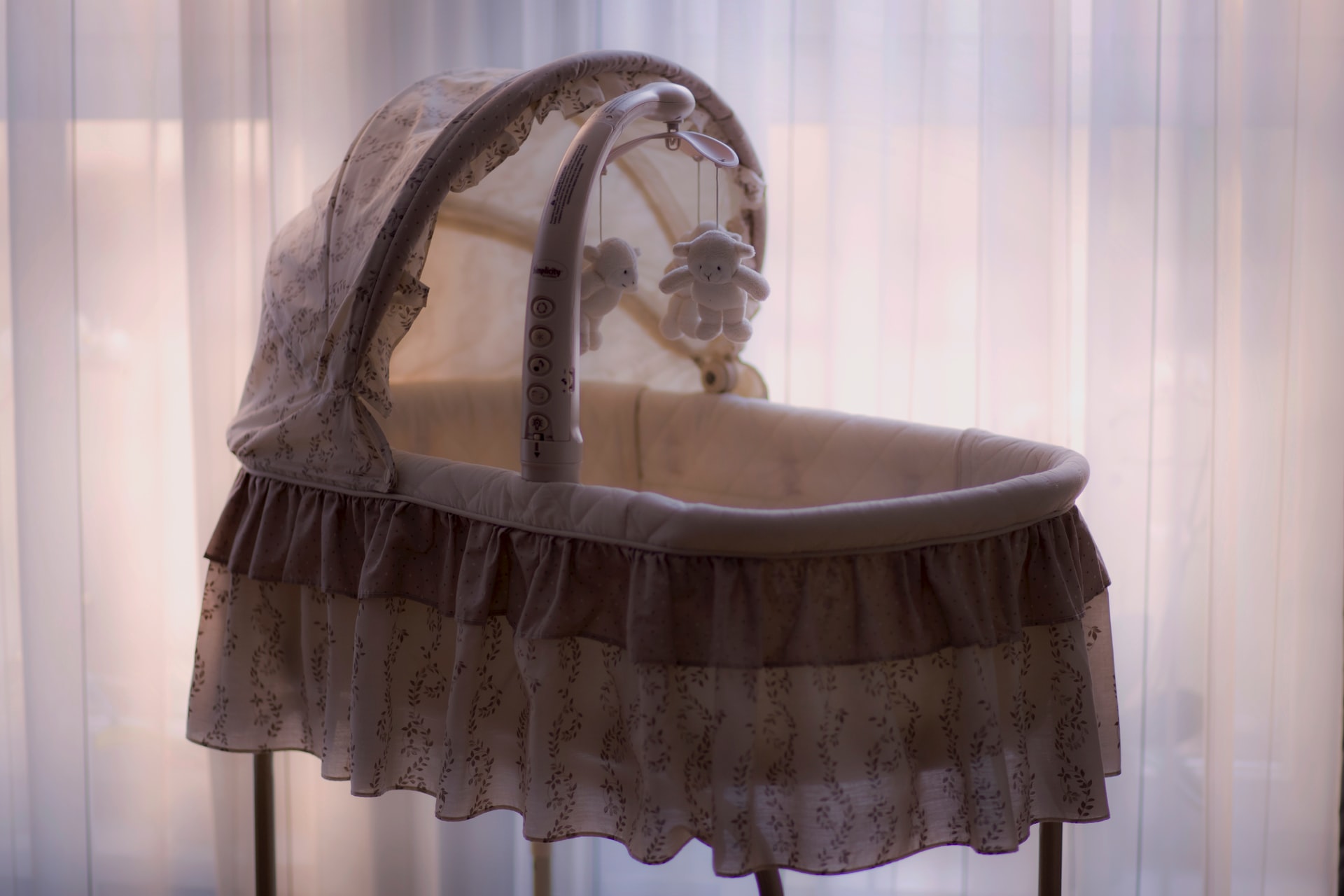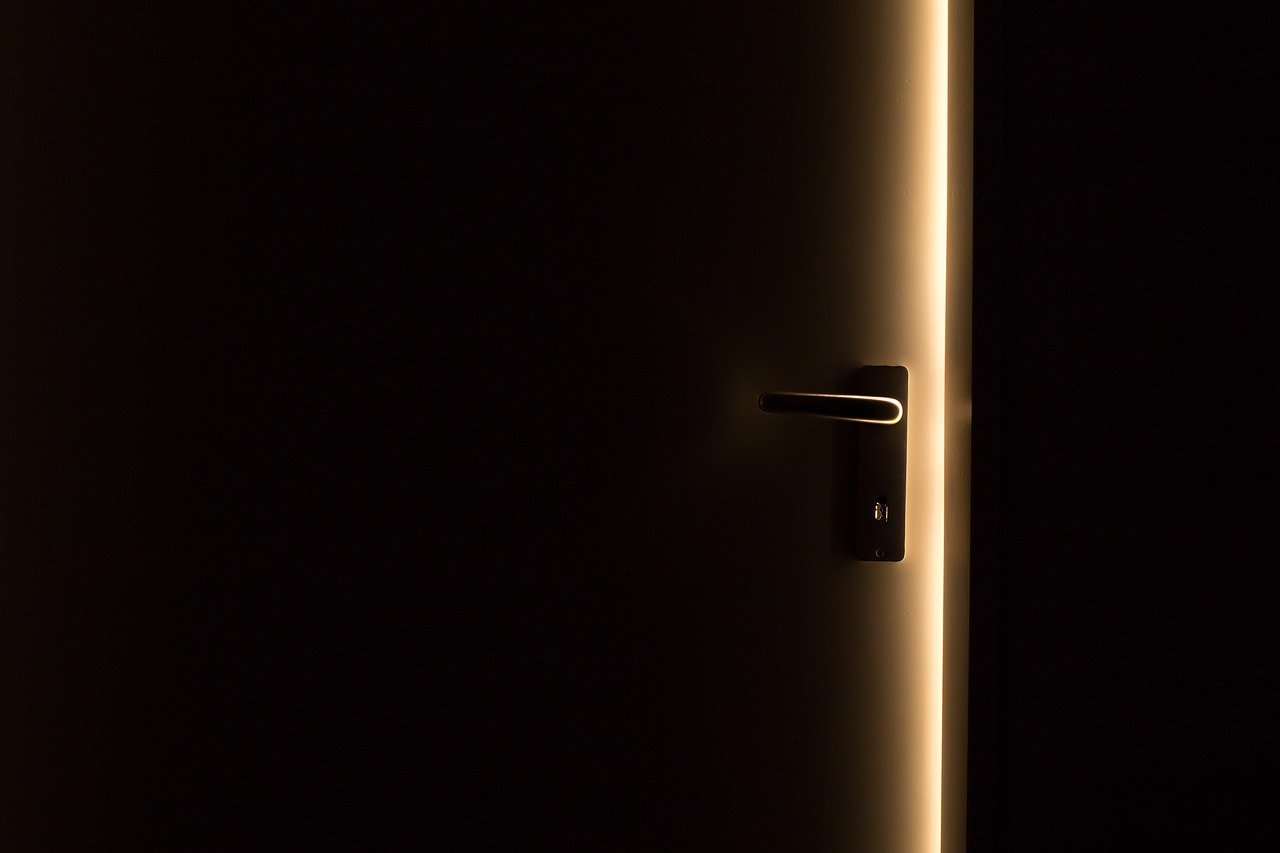This is it. You are back home with your baby! It is time of happiness, emotions…and great fatigue! This is because your baby’s sleep patterns are not at all like yours. Your baby’s sleep is fragmented – that is he/she sleeps for short periods of two or three hours, both at night and during the day. Why is this? It’s because their circadian rhythm is not yet established. Be aware that this is completely normal. So, if you are a parent of a newborn, you know that even though this little angel sleeps about 14 to 17 hours a day, this stage is not easy!
What does it mean to sleep through the night?

That’s a very good question! When one parent asks another, “does your baby sleep through the night?”, neither may have the same definition in mind. Sleeping through the night does not refer to total sleep time, but rather to the infant’s ability to sleep for several hours in a row. This therefore means sleeping for several hours in a row without waking up, or at least without signaling the awakening to one’s parent. There are different definitions, but most of the time we talk about six hours of uninterrupted sleep.
When will my infant sleep through the night?

This is a question that many parents ask themselves, so rest assured, you are not the only ones wondering! Although we often hear that babies start sleeping around six months of age, several studies have shown that there are big differences between infants. Some children will consolidate their sleep sooner and others much later. It is very important that your baby gets enough sleep every day. It is important for their health and for their development. On the other hand, sleeping through the night more or less quickly has not been specifically associated with developmental problems, if the total duration of sleep is not shortened. So don’t worry if your baby doesn’t sleep through the night, even if your neighbour’s baby is the same age and is doing so. You have to respect your child’s pace. Besides, remember, your neighbour may not have the same definition as you! It is therefore important to avoid comparing babies with each other, which causes many parents to worry unnecessarily. Unfortunately, many parents feel pressure to get their babies to sleep quickly, which adds to their sleep deprivation.
And when my baby sleeps through the night, does that mean he/she will always do so?

Another very common situation: a baby sleeps well during one night and his/her parents think that this stage has now been resolved. And it’s very tempting to imagine that! Unfortunately, that’s not quite the way it is. Sleeping is a bit like walking, babies don’t get it right the first time and sometimes they fall while they are learning. You rarely see a parent worrying because their baby has fallen while learning to walk, fearing he/she will never do it again…Yet you often hear this kind of worrying about sleep. Rest assured, although it can sometimes be discouraging, it is quite normal that for several weeks, even for several months, your baby alternates between sleeping… or not! In fact, throughout life, your child’s sleep will continue to evolve and not always at the same rate.
Strategies to help your baby fall asleep on their own
It is good to know that even if your baby sleeps for several hours at a time, he/she is likely to wake up every now and then and go back to sleep on their own. Maybe you are disheartened when you hear them wake up? Are there ways to help your baby fall asleep and go back to sleep on their own? Different factors are at play in this process. Some of these factors are internal, that is, they depend on your baby and it will be difficult for you to intervene. For instance, this is the case with genetic factors, brain maturation or temperament. Other factors are external to the child, including environmental and social factors. These are the circumstances when you can intervene:

1. Light
During the day, it is advisable to go outside to expose your baby to natural light.
2. Dark room at night
However, it is important to limit the sources of light when bedtime approaches, by dimming the lights during the evening and favouring a dark room.


3. Minimize interactions during the night
During nocturnal awakenings, it is also recommended to minimize interactions and keep this calm and subdued atmosphere. So even if you change the diaper or feed your baby at night, try to interact less and limit the intensity of the light so that he/she can calmly understand the difference between day and night.
4. Implement a routine
As your baby grows, you can slowly incorporate a relaxing routine before bed, consisting of a few, simple, calm elements that will be repeated each night in the same order. For example, taking a bath, putting on pajamas, reading a story, and singing a lullaby. Indeed, establishing a reassuring and predictable routine will allow the child to calm down, thus making it easier to fall asleep.


5. Massage
Some children enjoy massages. If your child does, you could make it part of your routine.
6. Avoid screens
As with adults, babies may be sensitive to blue light from screens. They are therefore to be avoided in the evening and at night and also during feedings and diaper changes.

Why is my infant waking up?

It is often difficult for the whole family, parents and siblings to be woken up several times at night. Some children also have difficulty falling back to sleep after waking up. There are several reasons why an infant wakes up or has difficulty falling asleep or falling back to sleep. For example:
- He/she just might not have made it to this stage.
- He/she has a transient health problem (cold, cough, ear infection, etc.)
- He/she may need a diaper change.
- He/she is entering a new developmental stage. It most often happens when children learn to walk or when they are teething.
- There has been a significant change in routine (for example, a new caregiver or a move).
- He/she may have understood, following one of these changes, that if they wake up and call their parents, they can see them at night and that is reassuring.
Should I intervene?

This is the question many parents ask themselves and there is no easy answer. Depending on their culture, values and preferences, parents use different sleep-related practices, as they do with different aspects of education. It is important to talk about it between parents, to find the best method that suits them! There is a lot of conflicting information circulating about how babies sleep, and it can be hard to find your way.
Some parents prefer to put their baby to sleep in their arms, while others prefer their baby to fall asleep independently. There is no right or wrong way to do it. However, be aware that the baby will probably need to fall asleep the same way he/she does at bedtime when they wake up during the night. Also, if you want to change the way you do things, you should expect to do so gradually. It is important that the sleep arrangement you choose is safe. However, there is a wide variety. Here are different approaches used by parents:

1.
Some people simply choose not to rush when their baby wakes up, so that they have a chance to go back to sleep.
2.
Some parents stay close to their baby to get them back to sleep, or they put a temporary bed in their baby’s room.


3.
Other parents will prefer to install the bassinet in their own bedroom. In fact, according to the Public Health Agency of Canada, it is recommended that you share the room (but not the bed) with your infant for the first six months of life, by installing a crib in your room. Some parents are more comfortable continuing with this arrangement, even after the age of six months, especially to facilitate breastfeeding.
4.
During awakenings, some parents decide to calm their baby gradually. You can talk to them or stroke them, without necessarily hugging


5.
For many young children, a transitional object, i.e., a stuffed animal or blanket can symbolically represent the parent and help the child take comfort. Even better if it smells like you! Remember to adapt this object to the age of your child, to make sure it is safe.
6.
Some parents want to use a behavioural-type sleep training method. There are different variations, but the basic principle is not to respond to the infant right away, so that he/she can go back to sleep on their own. We often hear about 5-10-15. This technique suggests that, after going to see the crying child for the first time to make sure that there is no particular problem, the parent will then wait five minutes to see if the child starts crying again when the parent leaves the bedroom before comforting the child again. If the crying continues, the parent will wait ten minutes before returning to see the child, and so on. It is also possible to use shorter intervals. This method should not be used in babies less than six months old.


7.
Other parents will decide to stay with the baby while they fall asleep, but to step back a little each night. Thus, the first evening, the parent can be ready for bed, the next day, take a few steps back, to finally be in the hallway after a few nights. This practice is often called the chair technique. It can be pushed back a little further each evening.
8.
Although most of the methods described are for babies, it is also possible to help the parent directly! Thus, by reassuring the parent and explaining that it is normal for there to be fluctuations from one night to the next, it is often possible to alleviate a tense situation that will have a beneficial effect on the whole family. It is important to have realistic expectations for your infant’s sleep.

Either way, even if you are tired, there is no point in getting mad at your baby. He /she doesn’t wake up on purpose! You anger and agitation may wake them up even more. If you’re feeling overwhelmed, ask your partner for help or call someone you trust.
When should I get help?

Consult a health professional, family doctor, pediatrician, nurse, psychologist if:
- You have concerns about your baby’s sleep.
- His/her general condition is deteriorating.
- You do not agree with your partner on how to deal with your child’s sleep.
- You feel overwhelmed by your baby’s awakenings, you feel exhausted or depressed for several days.
- You think your baby’s arousals are caused by a psychological difficulty (for example, snoring, apnea, or another sleep disorder).
- Remember! During your medical consultation, be sure to tell the healthcare professional what your expectations are, what your goal is, what is problematic for you and what your family values are. You have the right to feel uncomfortable with some suggestions, and it is helpful to have a constructive discussion.
Conclusion

Sleep patterns vary greatly from baby to baby, and even from night to night in the same baby. So don’t worry if your baby isn’t sleeping at a certain age or if their sleep fluctuates from night to night. There is no point comparing your baby to another. Sleep patterns, like many other aspects of development, change in different babies. As we have seen, many types of factors can influence infant sleep patterns. You can intervene with some, but not with all! Finally, it is important to respect your family values while paying attention to your baby’s safety.
Dear parents, this special report “Becoming parents and the lack of sleep!” could also be of interest to you.
